Reading University VC speaks up for academic freedom
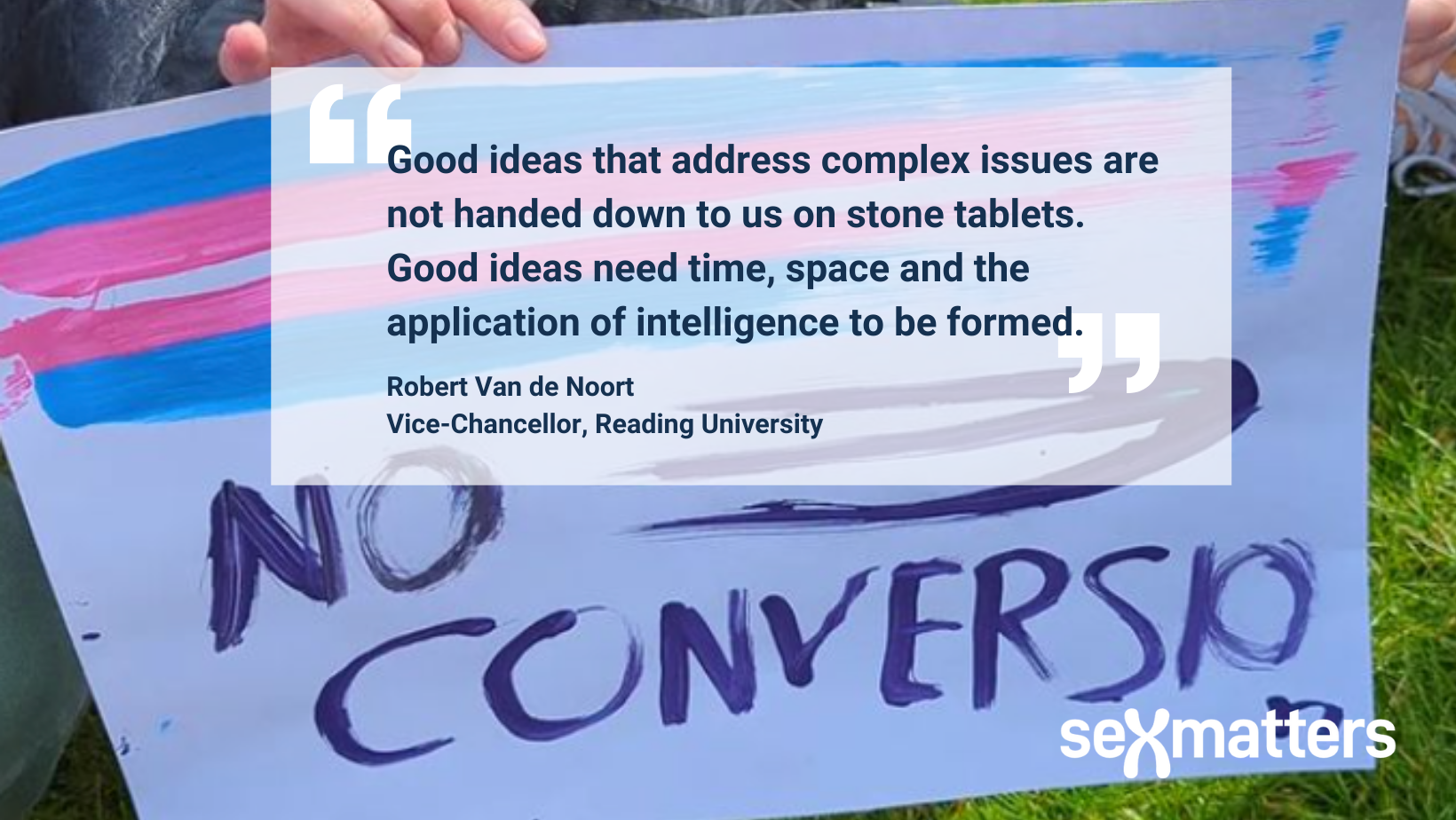
On 25 April 2022 Dr Holly Lawford-Smith, of the University of Melbourne, gave a seminar at Reading University’s school of law. She analysed Australia’s recent legislation banning conversion therapy, and questioned the rationale for including gender identity alongside sexual orientation.
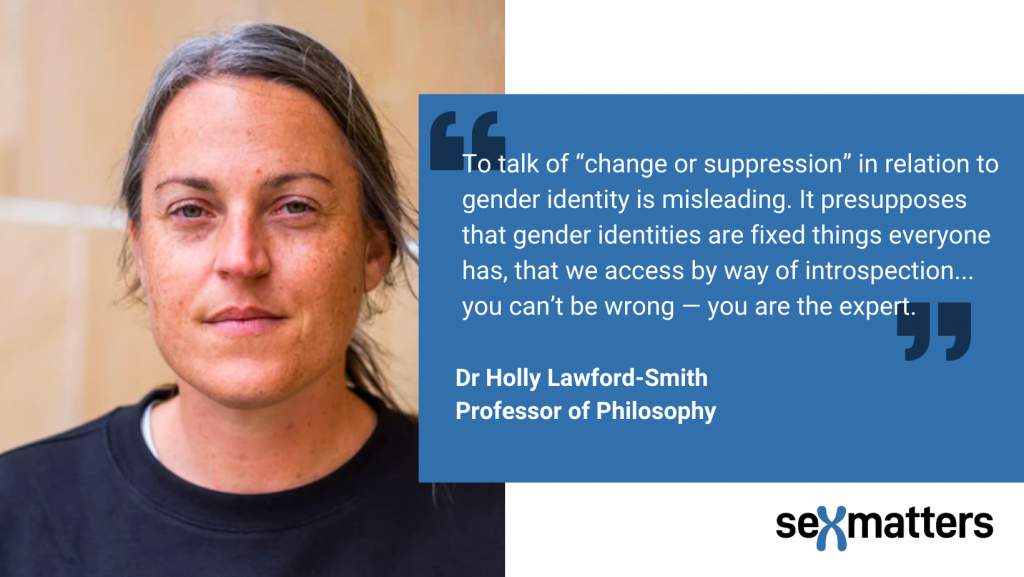
“We champion freedom of expression but…”
When local LGBTQ+ organisations learnt she was coming to speak, they started to campaign against her, writing an open letter saying the university was failing in its duty of care to support trans students by allowing the seminar to take place.
“We welcome and champion freedom of expression,” they said, before going on to express concern that Lawford-Smith’s opinions “should not unnecessarily encroach into lecture theatres”.
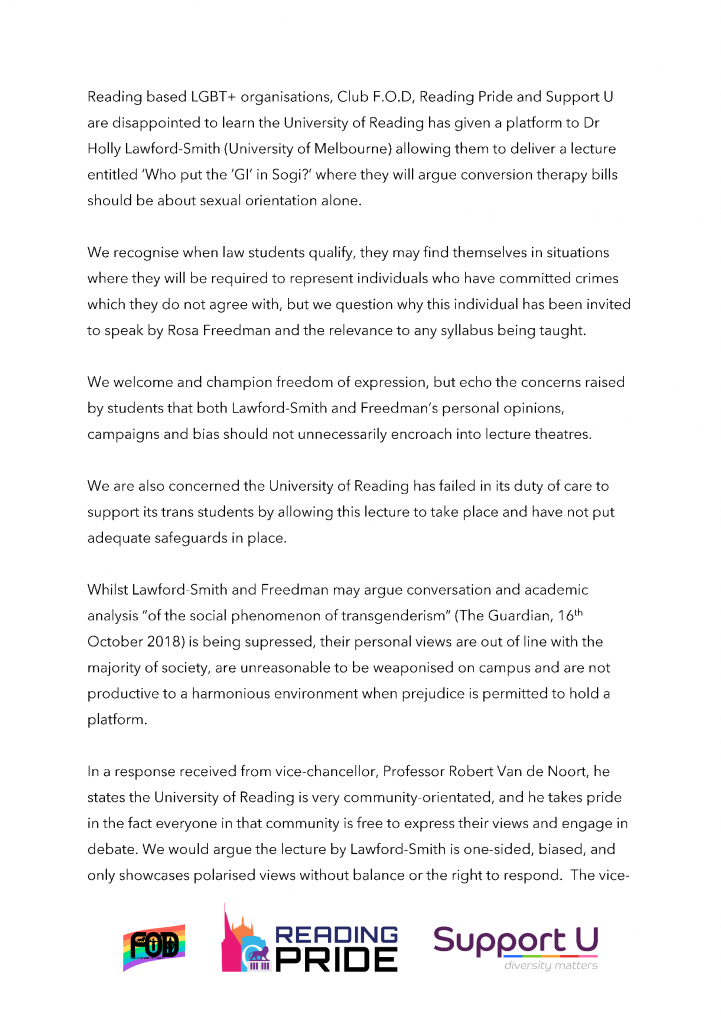
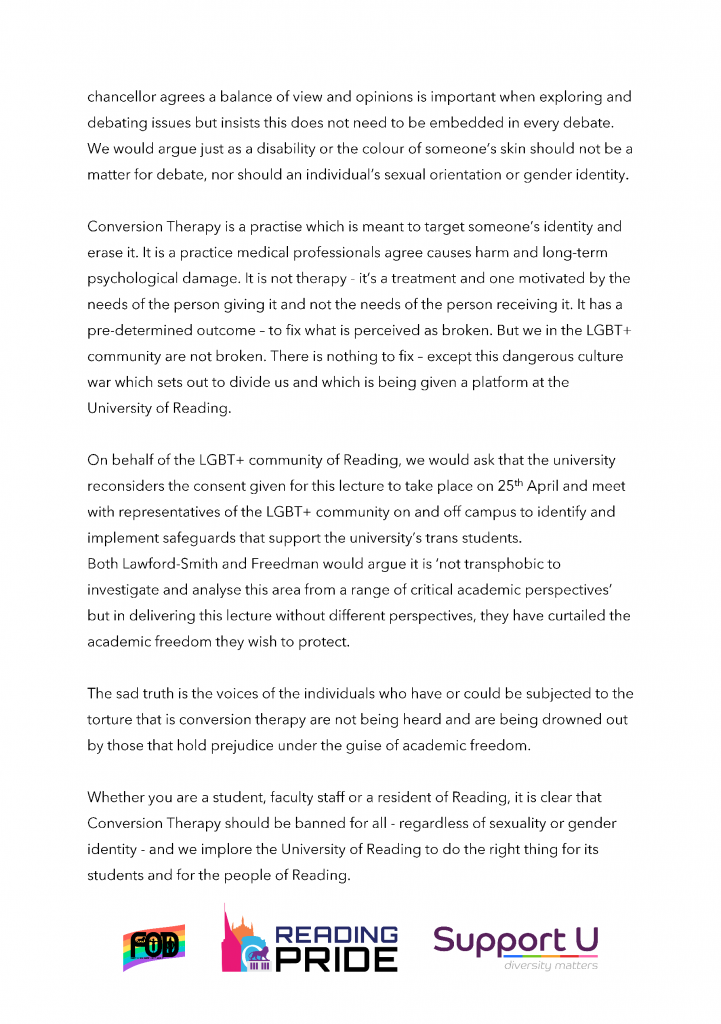
The student union also weighed in. Without knowing what Lawford-Smith would say, officers argued that the seminar should go ahead only if equal time was given for an opposing speaker. Student societies lined up to denounce the event. The drama society called it “nothing more than transphobic hate speech”. There was an online petition and a demonstration was planned, with warnings that the noise might disrupt exams.
The demands
The student activists demanded:
- acknowledgment from the university that the United Nations has described trans conversion therapy as “torture”
- support from the Vice-Chancellor for banning conversion therapy for all
- the University of Reading to platform public-access lectures advocating for trans rights
- more trans diversity in hiring faculty members, particularly in the law school
- more support for the health and wellbeing of trans students.
But this story doesn’t end in the usual way.
The university held its nerve, saying that the seminar was legitimate, and providing security to ensure that it could go ahead peacefully.
The peaceful protest
On the day, several dozen students gathered outside, enjoying their freedom of speech with flags, signs and placards, and the peace was kept. The event passed without incident. Two protesters attended the seminar, and even sat and had coffee with the speakers and other attendees afterwards.
The complaints
But after the event, external agitators mobilised to generate multiple complaints against the university, producing template letters and promoting them on social media and via a Discord server. The complaints accused the university of acting unlawfully and of creating a hostile and unsafe environment. The university appointed Professor Peter Miskell to investigate.
- The first allegation was that Dr Lawford-Smith’s arguments condone torture. Miskell read Lawford-Smith’s papers and watched a video of the talk. He concluded that there was no evidence of this. Her analysis was grounded in evidence and made the critical distinction between talk therapy and abusive “aversion” therapies.
- The second allegation was that it was illegitimate to allow Holly Lawford-Smith to speak without an opposing speaker. Miskell found that the single-presenter format was perfectly appropriate for a departmental research seminar, and noted there had been robust and open discussion following the talk.
- The final allegation was that the university breached its commitment to diversity, inclusion and safety by providing a platform to a speaker alleged to hold “transphobic” views. This was dismissed as misunderstanding what diversity and safety mean.
Miskell stressed that while university is committed to keep people safe, this did not mean providing a safe space for coddling young minds:
“There is no stipulation within the University’s policies requiring it to prohibit the organisation of events on the basis that the expression of offensive or repugnant views poses a threat to student safety. On the contrary, the Freedom of Speech Code of Conduct places an obligation on all students and staff to tolerate the expression of opinions within the law which are repugnant to them.”
Robert Van de Noort speaks up
University Vice-Chancellor Robert Van de Noort took this as a teachable moment, publishing a strong, principled defence of academic freedom and freedom of speech.
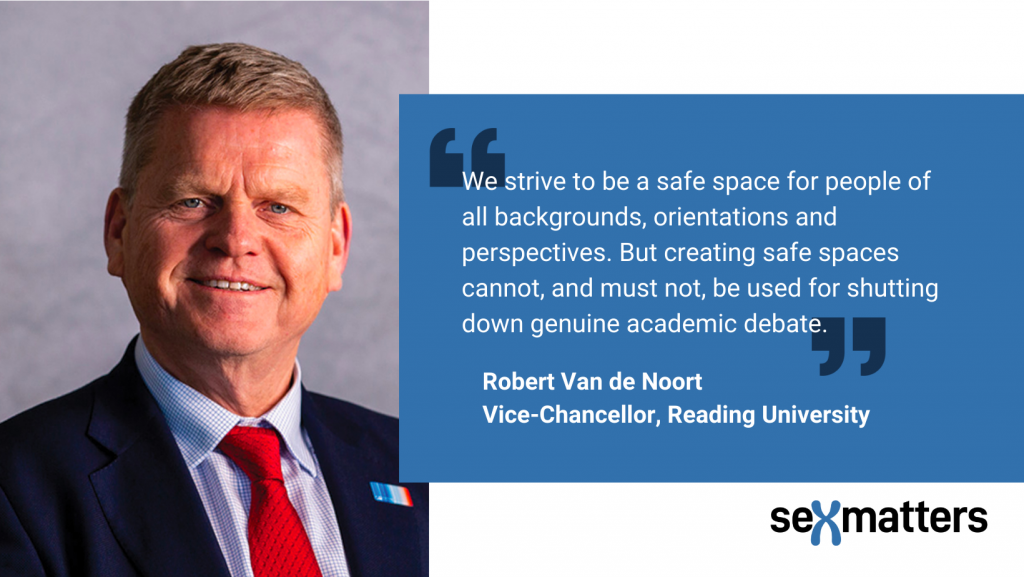
He urged students to be open to debate:
“None of us, though, has a right to not be offended by somebody’s views. We have an obligation to respect and allow others to express views we disagree with, even those we find upsetting and hurtful. If you are offended by a speaker, don’t just surround yourself with people who agree with you – go to the talk or seminar and try to change some people’s minds through reasoned debate. Preventing discussion from happening isn’t just wrong, it’s also counter-productive to good ideas.”
What did Reading University do right?
- It set the tone from the top.
- It didn’t panic in the face of online hype about offence, “torture” and “hate speech”.
- It stuck to its principles, its charter and process, in particular its legal obligations to protect academic freedom.
- It engaged with the content of Holly Lawford-Smith’s talk and recognised that it constituted a legitimate engagement in research and public debate.
What pitfalls did Reading University avoid?
Reading University didn’t hand over decision-making to the LGBTQ+ activists, or engage with their list of demands. It stuck to its job.
This is in contrast to the 28 university medical schools that have already signed up to a charter on conversion therapy similar to the demands of the protesters in Reading.
They have committed to supporting a broad ban on any form of “conversion therapy”, to teaching only gender-identity affirmation, and to forbidding medical school students and staff from participating in the provision of “any form of ‘conversion therapy’ ” under any circumstances.
Imagine if Reading University had signed up to such a charter. Would it have been able to protect the academic freedom of Holly Lawford-Smith to unpick the meaning of conversion therapy? Or of any other academic to do research that defines conversion therapy more narrowly than the activists?
We have written to the Office for Students urging it to investigate the medical schools charter, and to the vice-chancellors and heads of the medical schools, to warn them that what they have signed up to is a commitment to breach their legal obligation to protect the freedom of speech of members, students, employees and visiting speakers.
